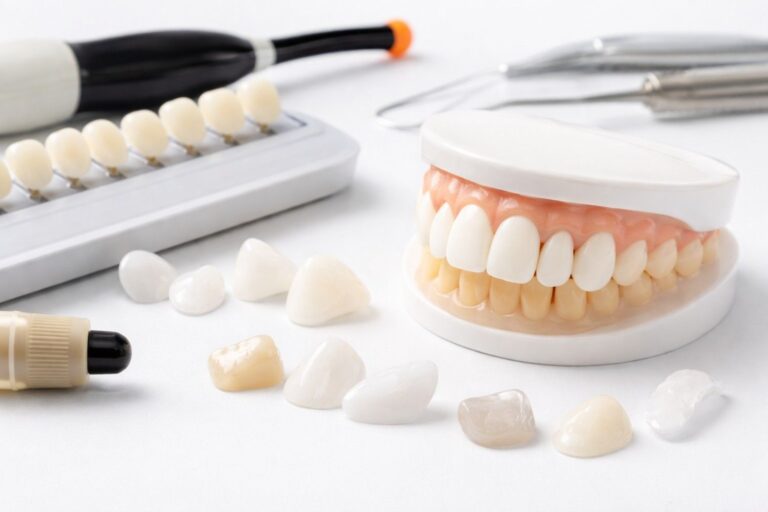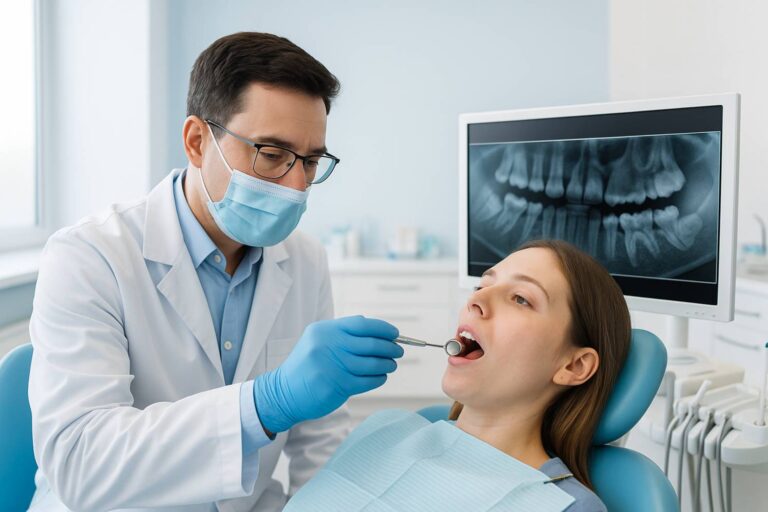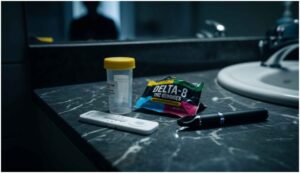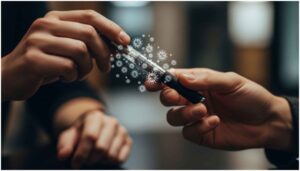The first time I heard someone say, “Dude, that’s THCA, not THC,” I smiled and nodded like I totally knew the difference. Truth? I didn’t. I just thought THC was THC, end of story. Fast-forward to me buying flower labeled with “high THCA content” and realizing I had no idea what that actually meant.
That moment sent me on a mission to figure out what is the difference between THC and THCA—and why people keep mixing them up.
If you’ve ever found yourself squinting at a label in a dispensary, wondering what you’re actually getting, you’re not alone. Let’s break it down in plain English.
What Is THCA and How Is It Different From THC?
THCA (tetrahydrocannabinolic acid) is the raw, non-psychoactive form of THC that’s found in fresh cannabis plants. Think of it as THC’s introverted sibling—it’s present, but it doesn’t give you that signature high when consumed in its natural state.
THC (tetrahydrocannabinol), on the other hand, is the compound we all recognize as the star of cannabis. It’s the psychoactive element that produces the buzz, euphoria, or relaxation most people associate with smoking or vaping.
The key difference? THCA needs heat to convert into THC. This process, called decarboxylation, happens when you smoke, vape, or bake cannabis. Without that spark, THCA just hangs out quietly without triggering the high.
Why Does the Conversion From THCA to THC Matter?
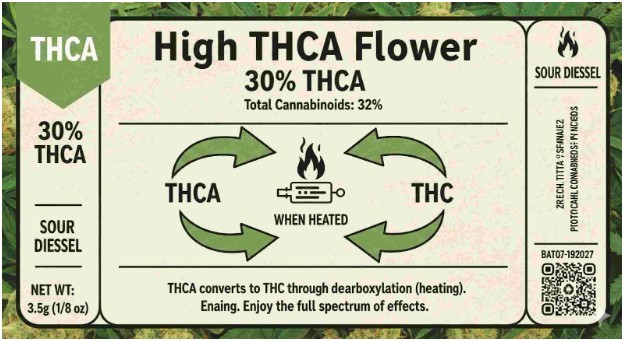
The conversion matters because it explains why raw cannabis won’t make you feel high. You could eat a handful of raw flower rich in THCA, and all you’d get is plant flavor, not euphoria. But light it up, and boom—the THCA transforms into THC, unlocking psychoactive effects.
This distinction is why cannabis labels often highlight both THCA and THC percentages. High THCA content means the product will likely be potent once heated, even if it looks low in THC in its raw form. Understanding this helps you gauge strength more accurately and avoid surprises.
What Effects Does THCA Have Without Heat?
Here’s where it gets interesting: THCA might not get you high, but that doesn’t mean it does nothing. Early studies suggest THCA could have anti-inflammatory, neuroprotective, and anti-nausea properties.
Some wellness enthusiasts even juice raw cannabis leaves to tap into THCA’s potential benefits without the psychoactive kick.
That said, research is still in its early stages. The majority of what we know about cannabis’s therapeutic effects focuses on THC and CBD. THCA is the new kid on the block—promising, but not fully understood yet.
Choosing Between THC and THCA Products Made Easy
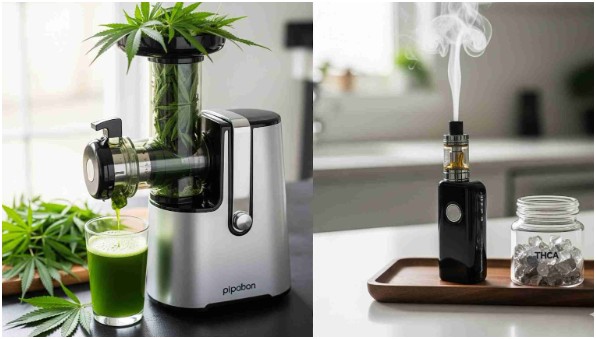
If you’re shopping and staring at numbers, here’s how I recommend approaching it:
Step 1: Know your goals. If you’re looking for the high, focus on products with high THCA content that will be activated once heated. If you’re curious about raw benefits, you’ll want THCA in its non-decarbed state.
Step 2: Read labels carefully. Some flower might look weak in THC but has sky-high THCA. That means once you smoke it, it’ll hit much harder than the label suggests at first glance.
Step 3: Experiment mindfully. If you’re new, start small. Heat transforms THCA quickly, and you may underestimate potency if you don’t account for the conversion.
Step 4: Think about format. Flower, vapes, and edibles usually rely on heating. Raw cannabis or specially prepared oils may retain more THCA if consumed without heat.
The difference between THC and THCA isn’t just chemistry—it’s about how you use it and what you want out of the experience.
Also Read: Does HHC Show Up On Drug Test?
FAQs About THC vs. THCA
Q1: What is the difference between THC and THCA in effects?
THCA is non-psychoactive in its raw form, while THC is the compound that produces a high. Once THCA is heated, it converts into THC and delivers those familiar effects.
Q2: Can THCA show up on a drug test?
Yes. Even though THCA isn’t psychoactive, it can still break down into THC metabolites during processing or in the body. Most drug tests don’t differentiate between the two.
Q3: Is THCA legal if THC isn’t?
This depends on your state or country. Some jurisdictions regulate cannabis based on THC content alone, while others account for THCA’s potential conversion. Always check local laws before purchasing.
Q4: Can you get benefits from THCA without smoking?
Potentially. Some people consume raw cannabis or THCA tinctures to explore anti-inflammatory and neuroprotective effects. But the research is still developing, so claims should be taken with caution.
THC vs. THCA: Same Plant, Different Story
So, what is the difference between THC and THCA? In short: THCA is the raw, inactive form that becomes THC when heated. THC is the psychoactive version that delivers the high. One is like a locked smartphone, the other like unlocking the screen and using all the apps.
From my own experiments, the big takeaway is to understand how labels translate into real-world effects. Don’t underestimate a flower that looks “low THC” if it’s actually loaded with THCA—it’s just waiting for a spark.
My advice? Treat THCA as more than a buzzword. Whether you’re chasing therapeutic curiosity or recreational vibes, knowing the distinction helps you make smarter, smoother choices.






